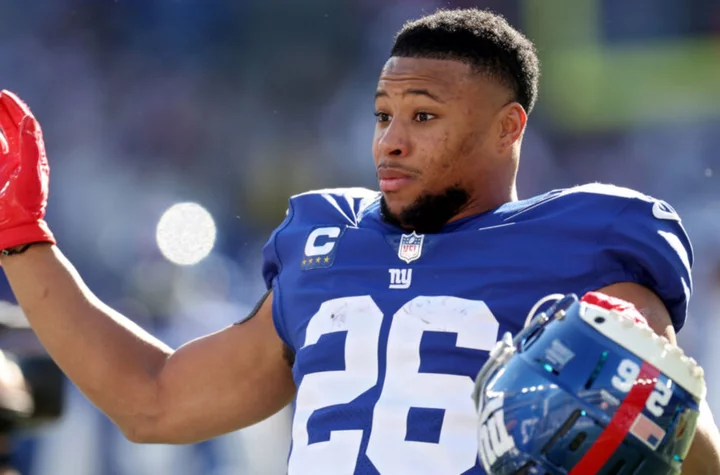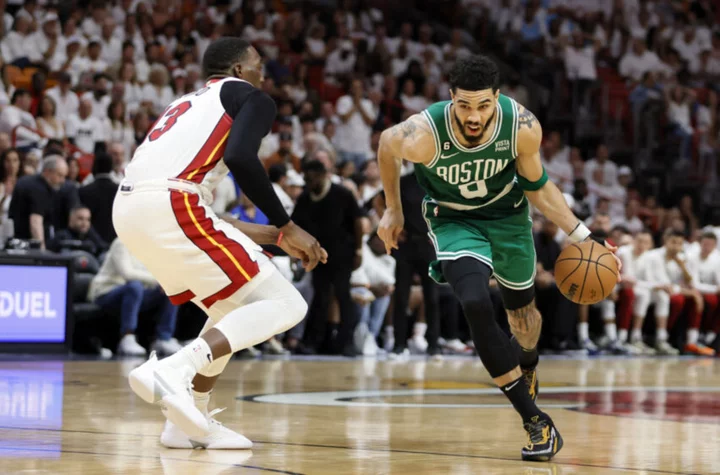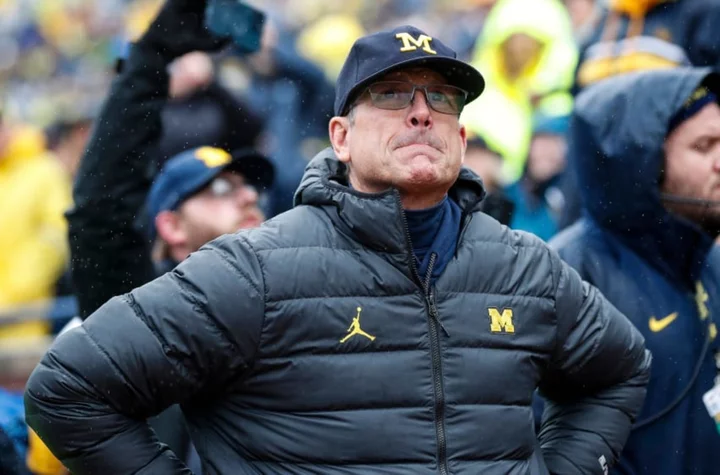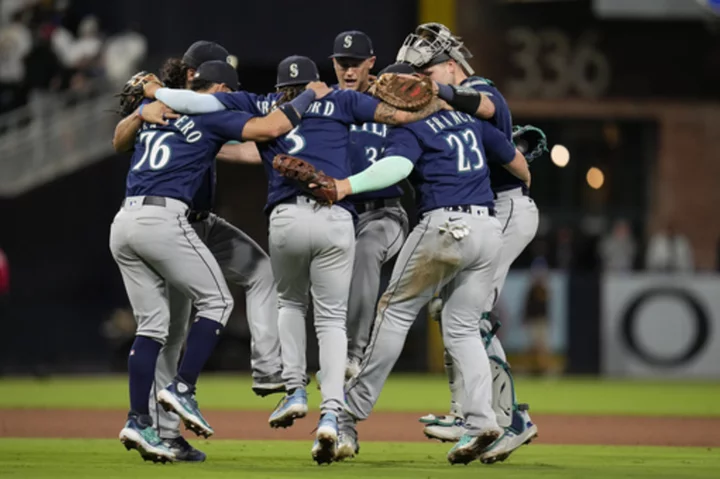Across the NFL landscape, there are several teams who may have erred in judgment when making key decisions for the upcoming 2023 season.
Despite its reputation for being a "slow" time of the year, the offseason is when NFL franchises hustle to ensure that the upcoming season ends with a silver lining (and trophy). It's when teams make crucial decisions about which players to draft, which players to keep, and which players are more valuable as traded assets.
General managers who make savvy decisions, like Philadelphia Eagles general manager Howie Roseman, earn consistent praise for moves that will pay dividends in the seasons to come. Faithful New England Patriots fans have learned to ultimately trust Bill Belichick after more than two decades, yet his puzzling decisions warrant discussion all summer long.
Whether their decisions are conservative or bold, general managers across the league inevitably make mistakes in the offseason. This year will be no different, and while only the future will bring clarity on these matters, here are at least three decisions that will likely be regretted come September.
Biggest NFL offseason mistakes: 3. Patriots let go of Jakobi Meyers, then signed JuJu Smith Schuster
No one can quite replace Julian Edelman, but the slot receiver role existed before and exists after his retirement. Once Edelman hung up his cleats after the 2020 season, it opened up an opportunity for Jakobi Meyers. According to SI's Patriots Country, Meyers boasts 235 career receptions, which ranks third among all non-drafted players in the NFL since 2019. For the past two years, Meyers provided the consistency that the new-look Patriots needed — yes, even though he made that play.
Ultimately, the Patriots let Meyers fall to the free agency market, after which they signed veteran wide receiver JuJu Smith-Schuster. With reporters still lamenting that Bill Belichick refuses to spend on his offense, it's clear that Smith-Schuster no longer commands the star power he once did as a Pittsburgh Steeler.
While Smith-Schuster is a Super Bowl champion, he demonstrated little during his time with the Kansas City Chiefs that makes him a suitable replacement for Meyers.
Meyers went on to rejoin Josh McDaniels on the Las Vegas Raiders, signing a 3-year deal worth $33 million. Funnily enough, Smith-Schuster also signed a 3-year, $33 million deal with a base value of $25.5 million when he joined the Patriots. Considering that the Patriots and Meyers couldn't seem to reach a price that was suitable for both parties, seeing New England shell out the same amount for a different receiver reiterates the notion that they should have stuck with Meyers.
Not only has Meyers grown in productivity since 2019, but he has developed as a leader in the absence of Tom Brady and Julian Edelman. He has built crucial chemistry with Mac Jones, and while the Patriots can survey the wide receiver market and draft a new crop of wideouts, no one will be able to replicate Meyers' understanding of the playbook and the locker room, at least not by 2023.
Considering that Smith-Schuster and Meyers are the same age and signed such similar contracts, it seems the Patriots would have fared better sticking with Meyers — unless they don't expect Smith-Schuster to reach his contract incentives, thus expecting a discounted replacement.
Biggest NFL offseason mistakes: 2. Minnesota Vikings letting go of Dalvin Cook
The NFL was built on the backs of running backs, yet today, this position is bearing the brunt of financial exploitation. The market has been hostile to running backs on the cusp of securing new deals, with failed extensions for league leaders such as Austin Ekeler and Saquon Barkley.
Faced with the option of re-signing Dalvin Cook or letting him go, the Minnesota Vikings decided to part ways with their premier running back. It continues a trend for the Vikings: a continued distancing from the RB-laden days of Mike Zimmer in preference of Kirk Cousins' frequent lobs to the endzone. It worked well enough for the Vikings last season, and they did draft Jordan Addison in the first round. However, the vital piece of information every franchise seems to have forgotten is that the best NFL teams reflect balance, which supports variety. A predictable offense is a stoppable one, and the Vikings just rid themselves of one of the most productive running backs in recent years.
Cook is coming off his fourth consecutive 1,000-plus season in rushing yards, with four rushes that went for 40 yards or more in 2022, per The Athletic (subscription required). His cap hit of $14.1 million in 2023 was the third-highest among running backs, and considering the current market for running backs, it's not surprising that the Vikings were uninterested in continuing on Cook's five-year deal worth $63 million.
Instead, the Vikings are moving forward with Alexander Mattison, who has served as Cook's backup since being drafted by the Vikings in 2019. While Cook has gotten the majority of carries, comparing Mattison's rushing attempts and yards per season to Cook's numbers further proves that Cook is the more capable of the two.
In 2017, Cook logged 354 rushing yards and two touchdowns on 74 attempts. In 2022, Mattison logged 283 rushing yards and five touchdowns on the same amount of attempts. In 2018, Cook recorded 615 rushing yards on 133 attempts, while Mattison recorded 491 yards on 134 attempts. It's true that Mattison was utilized in different situations, which accounts for some of the discrepancies, yet Mattison had a comparable amount of opportunities to push for more yards and came up short compared to Cook.
The Vikings took a hit when releasing Cook, and perhaps a dropoff at the position seems worth the cost, a move the rest of the NFL seems to endorse with their own frugal decisions at running back. But considering Addison's recent driving citation and a now-increased focus on Justin Jefferson as the primary offensive weapon, the Vikings may be even more short-handed than they realize.
Biggest NFL offseason mistakes: Giants placed trust in Daniel Jones over Saquon Barkley
Within the past week, the New York Giants have clarified their intentions with Saquon Barkley. There was no long-term deal reached by the July 12 deadline, leaving a franchise tender worth $10.1 million in 2023 on the table for Barkley. While the Giants reportedly offered Barkley a deal worth $13 million per year, Barkley was looking forward to "Christian McCaffrey money", which would have given him $16 million per year, according to Pro Football Talk.
Considering their options, the Giants first offered Barkley the long-term deal, then when Barkley refused, they signed quarterback Daniel Jones to a four-year, $160 million deal. It seems like a lot for Jones, who's now earning an average of $40 million per year, but it's comparable to what Derek Carr is earning for four years in New Orleans.
Paying Jones top dollar when his success is tied to Barkley's performance makes it seem like New York should have prioritized appeasing their running back. While Jones can relax with ample compensation, Barkley has no long-term security at what's proven to be an increasingly volatile position.
Barkley brought further attention to the Giants' error in judgment when he publicly spoke out about potentially holding in this year while he works out a fairer deal with the team.
Paying the 2022 Pro Bowler less than Tony Pollard and Josh Jacobs doesn't correspond with the impact he's had on the Giants' offense. In 2022, Barkley saw career highs with 295 attempts for 1,312 rushing yards. It's Barkley's first season since hs 2018 rookie campaign that hasn't been marred by injury, which certainly could influence how willing the team is to secure the 26-year-old running back in a long-term deal.
But with that aside, the market is tanking for running backs, and it appears that no NFL team is willing to raise the bar and increase the value at the position — which is what happens to quarterback position every offseason. Salary caps are only growing, yet the value of running backs in today's NFL is shrinking. If the Giants want to follow that trend by backing Jones over Barkley, they'll find out soon enough in the regular season how Barkley's barrelling allows the offense to flourish.









